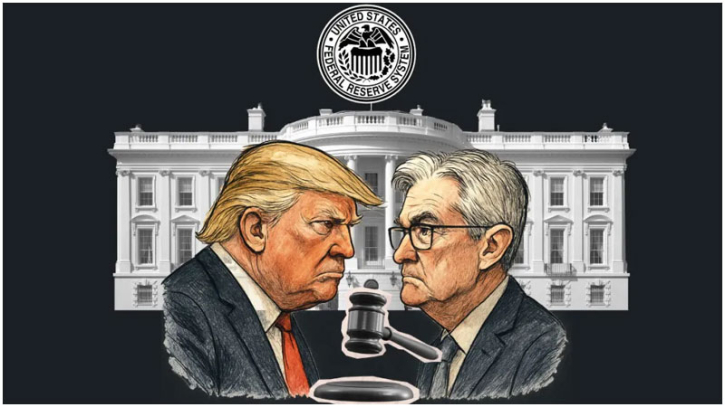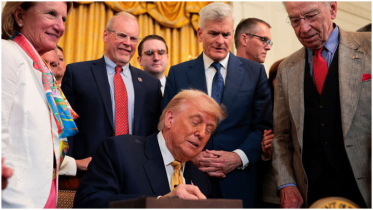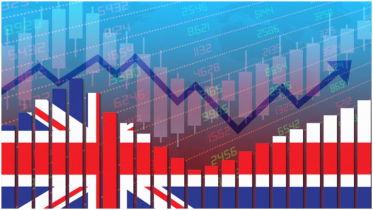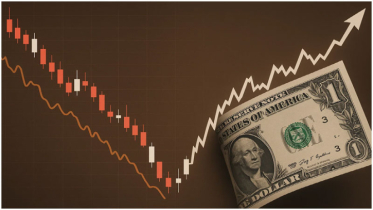US stocks climb despite Powell firing rumors and tariff concerns

U.S. stock markets closed higher on Wednesday, overcoming a sharp midday dip triggered by speculation that US President Donald Trump might fire Federal Reserve Chair Jerome Powell.
The major indices fell briefly following reports that Powell’s dismissal could be imminent, but quickly rebounded after Trump dismissed the idea, saying such a move was "highly unlikely" and adding, "I'm not talking about that" when questioned directly.
Despite his long-standing criticism of Powell's policies, Trump's denial helped calm investor nerves and allowed the markets to recover. By the close, all three major U.S. indices had posted gains, with the Nasdaq reaching a record high for the third consecutive session.
Investor sentiment appeared to remain firmly optimistic despite the political uncertainty. Adam Sarhan of 50 Park Investments commented that the market continues to demonstrate a bullish bias, reacting to negative news with surprising resilience.
"It’s very clear that the market wants to go higher," Sarhan noted, observing that each wave of bad news—including the Powell rumors—has been met with brief concern, followed by a rally.
The Powell controversy also rippled through the currency and Treasury markets. The U.S. dollar initially weakened against the euro and other major currencies but regained some of its losses after Trump's statement. Treasury yields fluctuated as investors digested the implications of both the political drama and broader economic indicators.
At the same time, markets remain focused on rising trade tensions and their impact on inflation. President Trump has threatened to impose additional tariffs on August 1 if the U.S. fails to secure trade agreements with key partners, further heightening concerns about price pressures. Recent economic data reflect those concerns.
The June Consumer Price Index showed an uptick in pricing pressure, partly attributed to tariffs, while the Producer Price Index remained flat on a month-to-month basis after rising 0.3 percent in May.
The Federal Reserve’s Beige Book—a periodic summary of economic conditions—highlighted that many companies are already passing increased costs onto consumers due to tariffs and expect elevated costs to persist.
In corporate news, several high-profile companies stood out. Johnson & Johnson shares surged by 6.2 percent after the healthcare giant raised its full-year forecast on the back of better-than-expected quarterly earnings. Analysts also pointed to a reduced estimate of the company’s exposure to tariff-related costs, which buoyed investor confidence.
Goldman Sachs saw its stock rise 0.9 percent after reporting strong earnings that surpassed analyst expectations. CEO David Solomon expressed optimism about future dealmaking, citing a growing sense of confidence among corporate leaders about potential large-scale industry consolidation.
Meanwhile, Ford stock declined 2.9 percent after the automaker announced it would take a $570 million charge to address fuel injector issues in several vehicle models produced between 2021 and 2024, including the Bronco Sport.
Overall, despite the day’s turbulence, markets demonstrated a strong capacity to recover from sudden shocks. While political headlines and tariff concerns continue to generate volatility, investors appear focused on earnings strength and broader economic resilience, keeping the rally intact—for now.
.png)




